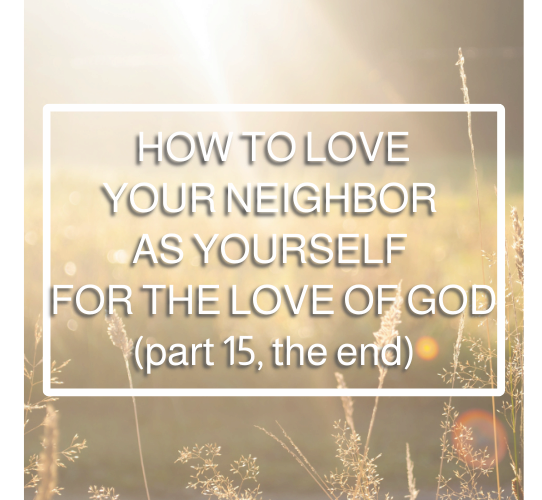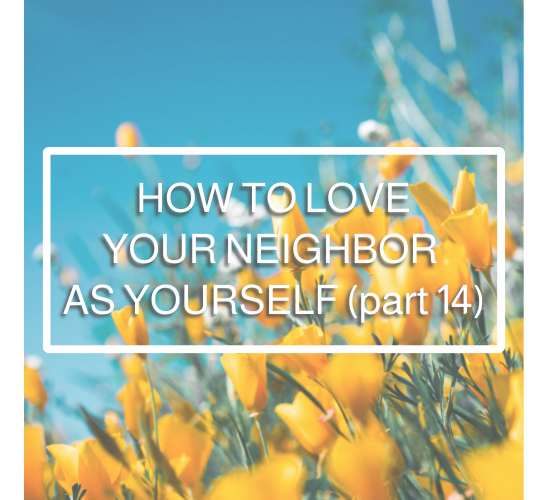Under the Bar
For the moment all discipline seems painful rather than pleasant,
but later it yields the peaceful fruit of righteousness
to those who have been trained by it. (Hebrews 12:11)
We all want “the peaceful fruit of righteousness.” That is, peace which God blesses us with as we live righteously, in obedience to Him. This peace is the inner-peace that every therapist’s couch invites us to discover. It is also the relationship-peace, the peaceful-community, that every commune and Utopian-kibbutz is set up to achieve. But it is only delivered by God’s grace embedded in God’s way.
In other words, God has programmed life so that peace comes to us in obedience. For example, “the peace that surpasses understanding” (Phil 4:7) comes as we pass our anxieties on to the Lord in prayer—an act of obedience, an act of faith. The Lord delivers His peace embedded in our faith’s activity.
So then, how do we get this inner- and outer-peace? How does this work?
The author of Hebrews says that it is the byproduct of—a thing yielded-by—the painful work of “discipline.”
Discipline! That’s a scary word!
What is this “discipline”? The author of Hebrews makes it clear in the context that this is not “God punishing us for our sins”—by the way, that’s kind of what the whole Cross of Jesus is about! It’s also not the natural consequences of sin. Sin always results in pain and grief—hey, you signed up for bowling-ball juggling, you’re going to have some lumps!
No, but this discipline is the unpleasantness that God has allowed in our lives for the purpose of producing this fruit. The easiest way to identify this discipline is simply to name your current pain! What are the unpleasant things in your life? “All” of the discipline that God uses is unpleasant. We may infer that nearly everything that is unpleasant is something God has allowed in our life for the purpose of producing righteousness in us. And this righteousness will yield peace.
But this yield is not guaranteed. He says at the end of this verse, “to those who have been trained by [the unpleasant discipline].” We have to let ourselves be trained by it. We must let the pain work.
First we must recognize what is happening: we are being trained. The discomfort is not random, it is not injustice, and it is not a problem to be eliminated. It is a lesson. It is a call to grow in faith.
There’s a big difference between physical exercise and training. Exercise—which is good—is getting your heart rate up and sweating. But it is ultimately purposeless. It’s healthy, but it has no objective beyond “feeling better.” Training, however, is moving the body in order to grow toward a specific objective. It involves progressively adding weight to the bar, miles to the run, or reps to the motion. And all this in service of a goal. That’s training.
The Christian life involves exercise—the “disciplines” that we subject ourselves to, like Bible reading, praying, fellowship, etc. But what the author of Hebrews is pointing out for us is that the Christian life also involves training. God has an objective for us. The Spirit is trying to increase our experience of God’s peace, by increasing our faithfulness to God’s word, by increasing or varying the unpleasantness in our lives.
Yay.
So we need to stay in the training. We must recognize and then commit to the work the Spirit is doing in us. We can’t bale out just because things feel heavy. It is the heaviness of life that drives us into faith. Unpleasantness compels us to pray, to get the Lord involved. Pleasantness does not do this. Lightness does not grow faith-strength. Heaviness does.
What is “righteousness”? First, it is to more deeply and more frequently feel our need for Jesus. God’s primary interest is always our faith.
Do we see how much we need Jesus? Do we love the gift of Jesus? Our need helps us see Jesus’ glory. And our pain helps us see our need. Now, when we feel this pain, confess our need, and turn to rely on Jesus more, what happens in us? We grow in… peace. We rest ourselves in His hands, rather than feeling the burden of needing to do all by ourselves. The righteousness that is faith yields peace.
Second, righteousness is loving others in obedience to Jesus. Love is, as all the biblical writers point out, very important. But how does love produce peace? As we grow in love, we grow less bothered by other people, and they grow less bothered by us. As we love more wisely and with more persistence, then troubled relationships improve. So, when we feel this pain, confess our need, grow in faith, and are led by the Spirit into greater love, what happens around us? We see… peace. We become more effective at spreading the peace of Christ to the people around us. The righteousness that is love yields peace.
But this is fruit we can only enjoy as we let ourselves be trained by the pain God has allowed. So today, recognize that you are in training. See that your heavenly Father who loves you is working to bring you to a place of peace in your spirit and in your life. Today, tomorrow, and so on, stay under the heavy bar, and grow.
It'll be unpleasant. It'll be okay. It'll be good.
Photo by Cindy Koops on Unsplash











